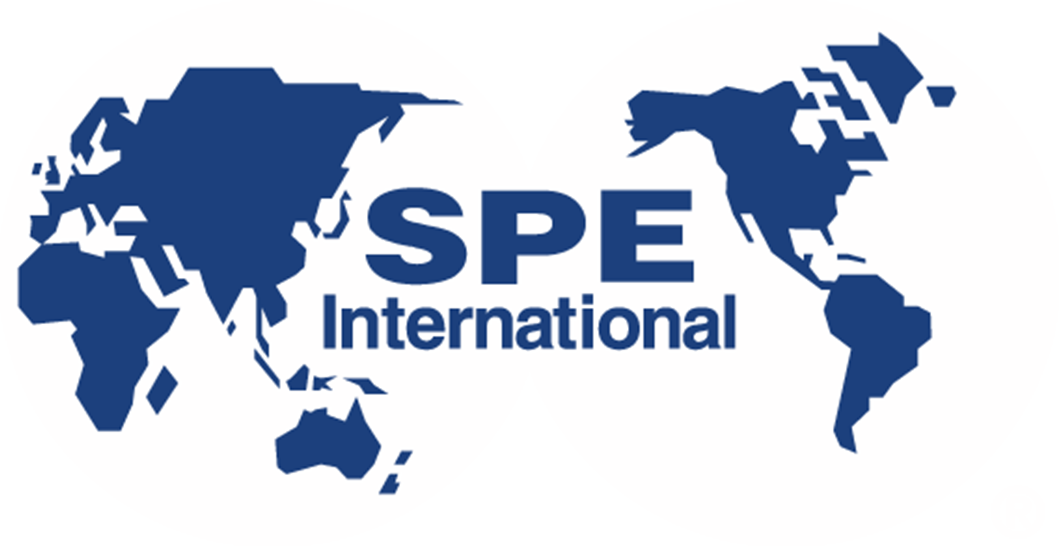Agenda
All times are Malaysia Standard Time (UTC +8)
Tuesday, September 28
Welcome Remarks:
Noriani Yati Mohamad
Head
Resource Development & Management-Sarawak
Malaysia Petroleum Management
PETRONAS
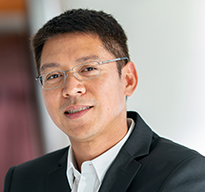
Peerapat Kritanusorn
Vice President
Development Planning Department
PTTEP
Keynote Address:
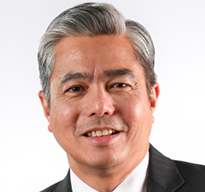
Adif Zulkifli
Executive Vice President and CEO Upstream
PETRONAS
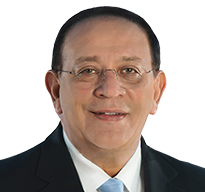
Montri Rawanchaikul
President
PTTEP
Moderator(s):
Noriani Yati Mohamad
Head
Resource Development & Management-Sarawak
Malaysia Petroleum Management
PETRONAS

Peerapat Kritanusorn
Vice President
Development Planning Department
PTTEP
Speaker(s):
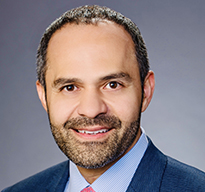
Irtiza Sayyed
President
ExxonMobil Indonesia
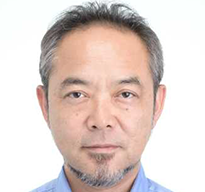
Atsushi Hatakeyama
Senior General Manager
Technical/Deputy Managing Director
JX Nippon Oil & Gas Exploration (Malaysia) Limited
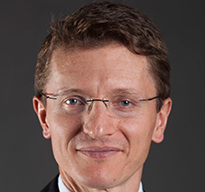
Frederik Majkut
Marketing and Strategy Director, Asia
Schlumberger
The Importance of Integrated Sub-surface and Surface Flow Assurance Modelling for Carbon Capture & Storage (CCS) Project
M Uzair Zakaria, PETRONAS
De-risking CCUS Opportunities at the Front End: Lessons Learned
Manoj Prabakhar, Independent Project Analysis Inc. (IPA)
De-risking CCS Transport Networks with Flow Assurance Engineering
Eduardo Luna – Ortiz, Pace Flow Assurance
The Conceptual Well Design for CO2 Sequestration Injection Well. The Challenges, Similarities, and Differences to the Normal Injection Well Design
Mohd Azuan Abu Bakar, PETRONAS
Key Results of the Tomakomai Project and a Look Ahead
Jiro Tanaka, Japan CCS Co., Ltd.
Feasibility Analysis of the Integration of CO2-EOR and Storage in Gas Reservoirs to Achieve China's 2060 Carbon-Neutral Target
Wang Wuchao, China University of Petroleum
Synthetic Methane from Renewable Hydrogen and Ambient CO2
Ali Kiani, CSIRO
The Double Win of Using Carbon Dioxide as a Cushion Gas during Hydrogen Storage
Gang Wang, Heriot-Watt University
Wednesday, September 29
Moderator(s):

Casey Delhotal
Senior Director Asia Pacific
Government Relations &
Advocacy Advisor,
Low Carbon Solutions
ExxonMobil

Siti Aishah Hatta
Manager - PE, SK Cluster 1
Malaysia Petroleum Management
PETRONAS
Speaker(s):
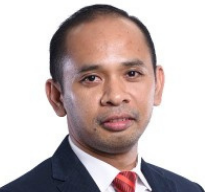
Beni Suryadi
Manager
ASEAN Centre for Energy

Dewi Mersitarini
Advisor II CCUS Innovation
PT PERTAMINA

Shahriman Johan Noor
Head and General Counsel
Malaysia Petroleum
Management
PETRONAS
Recently, there has been a surge in the announcement of ‘net-zero’ ambitions by governments, notably by industrial countries in Asia. These announcements by governments are accompanied by plans to vigorously support the introduction of measures through CCUS.
Preceding many governments’ announcements were pledges of net-zero goals by corporations around the world. The UNFCCC reported in September 2020 that the commitments of non-state actors, such as regional and local governments, private corporations, and citizens’ groups to net-zero doubled in less than a year. 1,101 businesses participated in the United Nations’ Race to Zero campaign, most of whom pledged net-zero by 2050.
There is a clear momentum of increased ambition both by governments and corporate organisations that would give a strong foundation for policies and promotion measures specified for CCUS as a climate change mitigation measure.
This panel will discuss the way forward with:
- Regulatory and policy frameworks
- Models for incentivising CCS projects
- Carbon tax and carbon credit regime
Moderator(s):
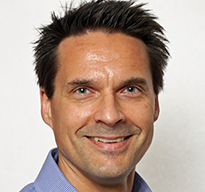
Juho Lipponen
Coordinator
Clean Energy Ministerial CCUS Initiative
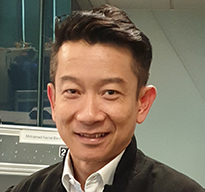
Mohamad Kamal Hamdan
Senior Reservoir Engineer
PTTEP
Speaker(s):

Daniel Quinn
General Manager
Resources Strategy Branch, Department of Industry, Science, Energy and Resources, Australia
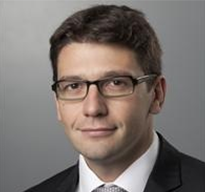
Lionel Martinez
Vice President
ING Bank N.V.
Matthew Taylor
Deputy Director
CCUS, CO2 Transport and Storage
Department for Business, Energy and Industrial Strategy (BEIS)
UK Government

Adiana Mastura M Idris
Head Commercial, Malaysia Petroleum Management
PETRONAS
Overall, the economics of CCUS implementation rely heavily on the balance of many factors. Some of these are the amount of CO2 captured, cost to capture, impact to host plant efficiency and output, cost-benefit of and ability to leverage tax credits, capital cost, and operations and maintenance costs.
When installing carbon capture systems, organisations must consider how they will dispose of and benefit from the large amounts of captured CO2. Location is the most important factor to weigh in when making these decisions. The cost to transport excess gas is substantial, plants need to be relatively close to the end storage reservoir for CCUS deployment to make economic sense.
Organisations must really look into strategies on how to utilise CO2 and generate other revenue streams from the CO2 captured.
Among the topics that will be discussed are:
• Project financing options
• Business models for revenue generating CCUS Projects
• Specific revenue generating CCUS projects
Towards Realizing Net Zero Carbon Emissions for Sustainability of Existing and Aging Offshore Facilities
Yen Pinng Chan, PETRONAS
CO2 Storage Potential and Transport Technologies for ASEAN Region
Yunyue Elita Li, National University of Singapore
Production Forecasting & CO2 Prediction Model to Rank Opportunities and Propose Energy Efficiency Projects in Strategic Plans
Suhail Diaz, Hartree Partners
A Systems-approach to Data can Help Install Trust and Enable a Net Zero Future
Graham Faiz, DNV
Novel CO2 Self-Healing Cement Supports Net-Zero Carbon Emission Goals
Bernardo Engelke, Schlumberger
Caprock Velocity Characteristics and Its Significance for CO2 Storage in a Saline Aquifer: A Case Study in Malay Basin
Zhong Cai, PETRONAS
Impact of CO2 Mixing with Trapped Hydrocarbons on CO2 Storage Capacity and Security: A Case Example from the Captain Aquifer
Saeed Ghanbari, Heriot-Watt University
Reaching Net Zero Carbon Future in Malaysia with Carbon Capture and Storage in a Carbonate Reservoir and Modelling the Storage and Containment Risks Using 2-Way Fully Coupled Dynamic-Geomechanics Approach
M Azlan Mustafa, PETRONAS
Thursday, September 30
Moderator(s):
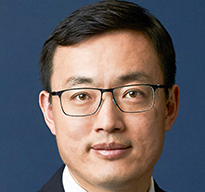
Tony Zhang
Senior Client Engagement Lead Australia, Southeast Asia, South Asia
Global CCS Institute
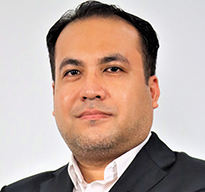
Mohd Khaidhir Abdul Hamid
Head of Delivery
PETRONAS
Speaker(s):
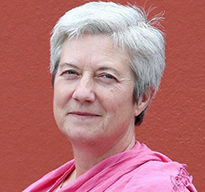
Linda Stalker
Senior Principal Research Scientist
CSIRO

Ola Sannes
Northern Lights Project Advisor
Equinor ASA

Ganesh Dasari
Senior Technical Advisor
ExxonMobil Upstream Research Company
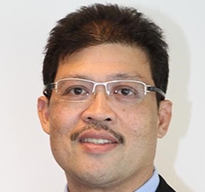
Nasir Hj Darman
Chief Technology Officer
PETRONAS

Mikel Erquiaga Aguirre
Director Eastern Hemisphere
Repsol
Southeast Asia is a compact geographical area with oil and gas infrastructures close to suitable geological sites, making the region highly strategic and ideal to build a CCUS hub to provide CO2 storage solutions for its countries, and neighbouring jurisdictions. A CCUS hub and cluster network delivers economies of scale and substantially reduces unit costs of CO2 transportation and storage.
A network is better suited to attract investments and to reduce financial risks for individual investors. Another advantage of a network is that it would improve operational flexibility by creating multiple operators and customers, which enables storage sites switching in the event of planned or unplanned outages.
Southeast Asia also has strong technical capabilities with the potential of developing a strong CCUS services industry, targeting offshore operations. As the region has an extensive infrastructure plan for oil and gas pipelines connecting Indonesia, Singapore, Malaysia, Thailand, Vietnam, Brunei, and Cambodia, deploying CCUS in the region will not be without significant challenges. However, the way forward is to forge collaboration within the industry to form a regional CCUS hub and cluster network.
The following key points will be discussed to encourage the thinking of public and private stakeholders when developing their CCS plan and strategy:
• Role of governments in supporting the regional hub and cluster network.
• The feasibility of governments incorporating CCUS into their PSC schemes.
• Public and Private Partnership in CCUS project development.
• The importance of international collaboration, foreign aid for financial resources.
• Mechanisms and tools to incentivise CCUS investment.
Carbon Nanotubes (CNTs) from Flare Gases: The Field Trial of Carbon Conversion as a Part of CCUS Technology
Sunisa Watcharasing, PTTEP
Oil Industry Helps Meet the Paris Climate Agenda
Raka Islam, Texas A&M University
CO2 Marine Dispersion Modelling for Offshore Carbon Capture and Storage
Mohammad Rashad Amir Rashidi, PETRONAS
